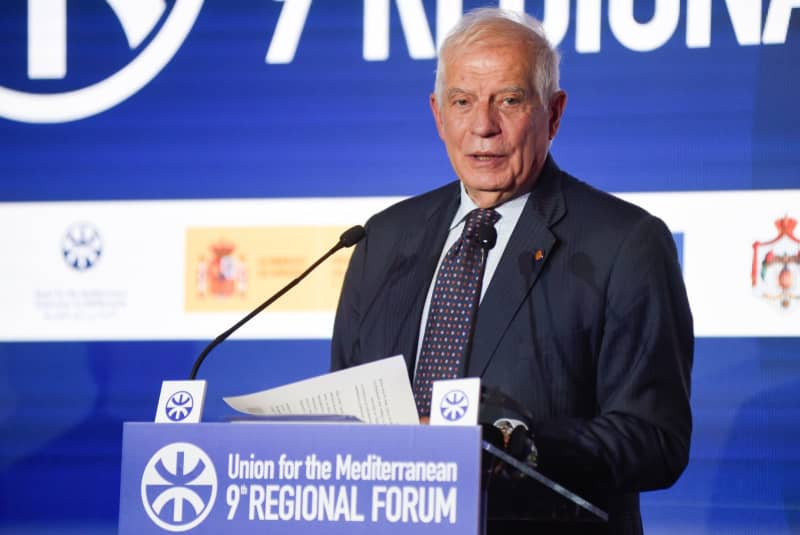EU foreign affairs chief Josep Borrell visited Kiev on Saturday for crucial discussions with Ukrainian leaders, marking what is likely his final official visit to Ukraine before his term ends. His commitment to supporting Ukraine during his tenure has been a personal priority, and he aims to ensure that the EU’s support for Ukraine remains a central agenda item even after he steps down. As the ongoing conflict with Russia continues to shape the geopolitical landscape, Borrell’s visit underscores the EU’s enduring commitment to Ukraine.
Upon his arrival in Kiev, Borrell was welcomed by the EU ambassador to Ukraine, Katarina Mathernova. His schedule included a meeting with Ukrainian President Volodymyr Zelensky, emphasizing the importance of high-level discussions between EU officials and Ukrainian leadership amid the evolving war scenario. Borrell pointed out in a message shared on social media that supporting Ukraine has always been a core focus during his time in office and highlighted the urgent need for continued solidarity in the face of external threats.
This visit marks Borrell’s fifth trip to Ukraine since the onset of Russia’s full-scale invasion in February 2022. Each visit has aimed to reinforce the EU’s commitment to Ukrainian sovereignty and stability, particularly as the war presents ongoing challenges for the nation’s government and people. Borrell’s consistent engagement reflects the EU’s strategic interest in supporting Ukraine and countering Russian aggression, which has ramifications not only for Ukraine but for the broader European security framework.
Borrell’s tenure as the EU’s foreign affairs chief is set to conclude with the upcoming appointment of former Estonian Prime Minister Kaja Kallas, announced in July. This transition in leadership raises questions about the future direction of EU foreign policy, particularly concerning Ukraine and its integration with European structures. While Borrell’s term has seen a firm stance against Russia, Kallas will need to build upon this momentum and address the complex dynamics influencing EU relations with Ukraine and other neighboring countries.
As Borrell prepares to pass the baton, there is a growing recognition of the multifaceted challenges Ukraine faces, not only in military terms but also in economic recovery and governance amid war. The EU’s role in providing aid and support will be critical, and Borrell’s discussions with Ukrainian leaders are likely aimed at addressing immediate needs while also laying the groundwork for longer-term assistance strategies that can adapt to the fluid situation on the ground.
In conclusion, Borrell’s final visit to Ukraine represents a culmination of his efforts to stabilize and support the country during a tumultuous period. His emphasis on lasting EU support echoes throughout his tenure, and the upcoming leadership change signals an opportunity for the EU to reassess its strategies in relation to Ukraine. As the conflict with Russia persists, the continuity of EU engagement will remain vital in supporting Ukraine’s aspirations for sovereignty, reform, and closer ties with Europe.

